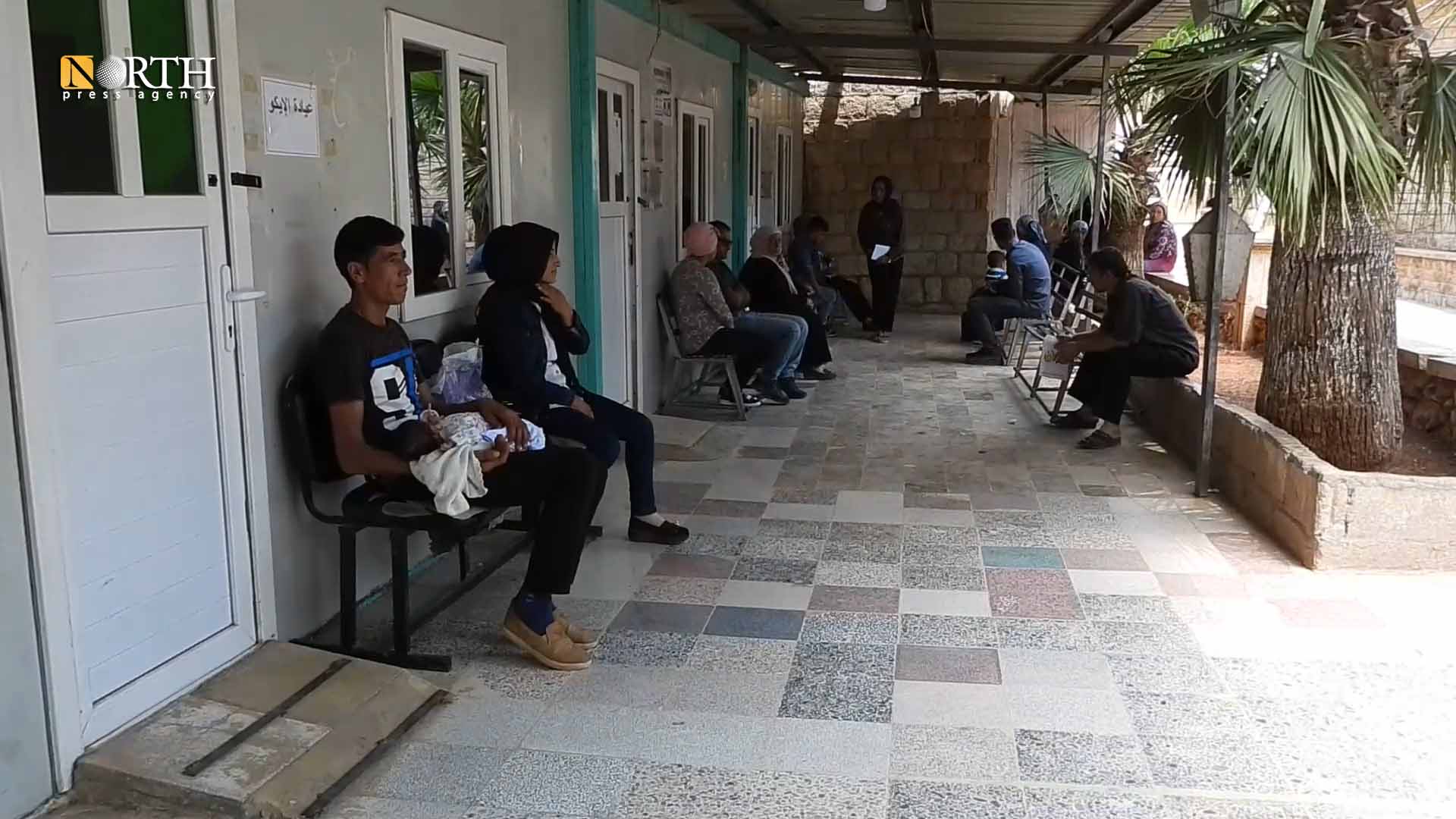ALEPPO COUNTRYSIDE, Syria (North Press) – Despite her attempts, Jamila Sheikh Khalil, a resident of Ahras village in the northern countryside of Aleppo, north Syria, failed to take her aunt to Aleppo city to conduct an MRI as she suffered a stroke and hemiplegia.
The checkpoints of the Syrian government forces near the city of Manbij, north Syria, prevent the entry of fuel and medicines to the northern countryside of Aleppo.
They also prevent the departure of ambulances of the Avrin Hospital in the northern countryside of Aleppo to transfer the critical cases to Aleppo for treatment.
There are about 150 patients waiting to enter Aleppo for treatment which the Avrin Hospital cannot provide, according to the management of Avrin Hospital.
It is worth mentioning that the region has seven medical points of the Kurdish Red Crescent-Afrin, which provide emergency medical services along with the Avrin Hospital, which is the only one that provides medical services for free.
In 2018, the Turkish forces and the Turkish-backed armed factions launched a military operation in Afrin region which caused the displacement of more than 300,000 citizens to the northern countryside of Aleppo, according to the Human Rights Organization in Afrin.
Some of the IDPs resided in camps of al-Awda, Barkhodan, Sardam and Shaba, while others distributed on 42 villages and towns of the region.
Sharp shortage of medicines
On July 4, the Health Board of Afrin region, northern countryside of Aleppo, which is one of the institutions supervising the camps and villages that host the displaced people from Afrin, called on the actors in the Syrian crisis and the international community to push the security checkpoints of the Syrian government in order to lift the siege they impose on the area, and to allow the entry of medicines and basic materials.
The prevention of the entry of medical supplies to the region led to shortage of the medicines and increased other types’ prices, according to the statement.
Sheikh Khalil fears that the health situation will worsen as the government checkpoints continue to prevent the patients to enter Aleppo. Can we leave the patients die here?, she wondered.
Jamal Ali, an administrator at Avrin Hospital said that the ambulance of the of the Syrian Red Crescent is dedicated to transporting only critical cases to Aleppo, and “is not doing its duty properly.”
“The ambulance is delayed for hours until they finish the security procedures and reports for transportation, which worsen the patient’s health situation,” he added.
Earlier, the hospital used to transport patients who needed medical services that it lacks, to Aleppo by its own car, “and it was not enough to transfer all cases on time,” according to Ali.
The hospital faces a severe shortage of medicines such as antipyretics and diarrhea medicines, which are in high demand with high temperatures, in addition to special medicines for operations.
The hospital receives between 800 and 1,000 patients of residents and IDPs, according to the hospital management.
Humanitarian disaster
The region is on the verge of a humanitarian catastrophe in the event that the siege continues and the entry of medicines is prevented. “We are even unable to do minor operations in Avrin Hospital,” said Dr. Muhammad Nour Shabab, co-chair of the Health Board of Afrin.
“We appreciate the efforts made by the local organizations and associations in terms of providing us with humanitarian aid, but this does not cover the health and humanitarian needs of the residents of the region and the Afrin IDPs,” Shabab added.
Shabab called on the International Red Cross (ICRC) and the World Health Organization (WHO) to play their role in delivering medicines to the area, “and not to allow the policies of the Syrian government to disregard the lives of the population and the displaced.”
Over the past three years, the security checkpoints of the government near Manbij have prevented the entry of relief materials, flour and fuel into the northern countryside of Aleppo more than once.
During the winter, the government checkpoints prevented the passage of fuel from the Jazira region to the northern countryside of Aleppo except for the allocations of the first batch which increased the suffering of the IDPs and the residents amid freezing temperatures.
Hevin Hussein, co-chair of the Health Board in the countryside of Aleppo warned that the patients, including children, those who suffer from cancer would lose their lives, while the health condition of others were deteriorating.
She asked to break the siege and said that the health condition in the region is “on the verge of a humanitarian disaster.”

